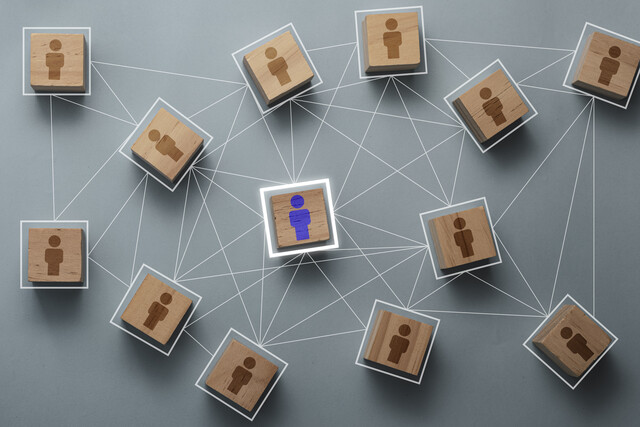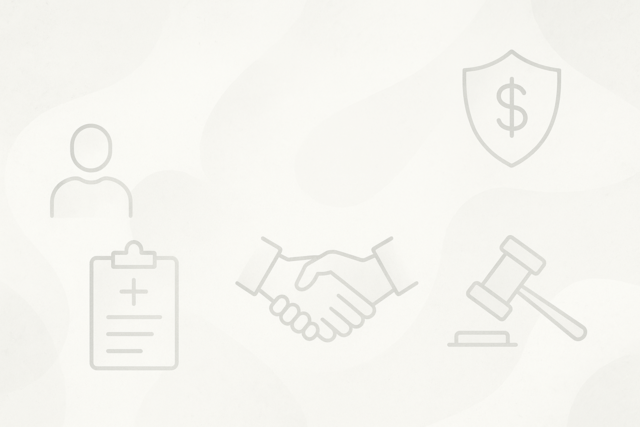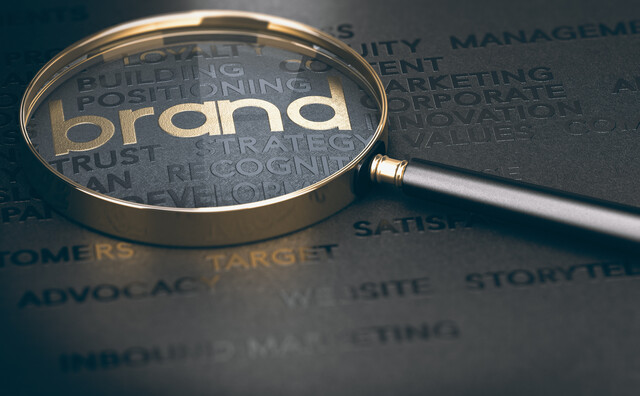| Paying Bills |
This may be one of the easiest things you can do and one of the hardest it seems for people to follow. When you do not pay your bills, you begin to suffer problems on your credit score after the first 30-day missed payment.
|
You may think that how much you owe on the bill will affect your credit score more or less, and this is true. If you owe more on a bill, your credit score will be greatly affected, more so than if you owe less. This shows that you need to keep all your bills up to date as much as you can. If you cannot pay all of your bill, then at least make a minimum payment on it so that you do not incur more penalties. |
If your bill goes to a collection agency, then you are going to be struggling even more to get it paid off. You may have a lot of trouble getting things set right and your credit score is going to fall even more as a result.
| Applying For Credit |
Many people do not even realize that every time they go for credit, it affects their credit score. The more you go for credit, the worse your score will get, because it will look as if you are a compulsive borrower. Lenders do not want to give money to someone who borrows a lot of money, because it will seem to them that you borrow for the sake of borrowing, and the more money you borrow, the more your debt to income ratio is going to increase.
It will not cause your credit score to go down a lot, but it will go down enough that it is going to raise a red flag for creditors who are thinking of lending to you. The worst is if you keep applying and getting refused. So, if a creditor can see that you have gone to four car dealerships in an attempt to buy a car, they are probably not going to lend to you, and your credit is going to suffer.
| Credit Cards |
Everyone seems to have credit cards, but most consider them to be something that is not so good. The reason for this is because credit cards seem to be at the forefront of personal debt. Many feel that they can simply pay later for what they want now, and this pushing away of the bill until later causes problems even further down the road.
| Foreclosure |
This can significantly affect your credit score because when you go through foreclosure, your credit can fall by as much as 200 points. Therefore, if you have good credit of 650, you will suddenly have horrible credit of 450. As well, foreclosures will stay on your credit report for seven to 10 years. This means that getting a home in that time period is going to be near impossible for you as a result.
| Bankruptcy |
|
Credit cards are used by millions of people across the country every single day. They buy lunches, dinners, toys and flowers. For many, they simply cannot live their lives without them, but that dependency leads to problems.
Before moving into how credit cards can affect your credit, and how knowing how to handle credit cards can improve your credit, let's look at some facts and figures from the past few years of credit cards. |
In terms of the companies that handle the credit cards, Visa is first, with a commanding 54 percent of the market, while MasterCard is second with 29 percent. American Express has 13 percent, and Discover Card has four percent.
For families, the average credit card balance is about $2,200, with about 40 percent of credit card holders paying their balance in full on a monthly basis.
In total, only 40 percent of credit card holders carry a balance of $1,000 or less on their credit card, while 15 percent actually have $10,000 or more on their credit card.
| How Many Cards? |
|
There is a common question among those who have credit cards as to how many credit cards is best to have. There will be those who tell you that having no credit cards is the best because there is no debt. Surprisingly, this is not true!
The truth is that even only having one credit card will not help you. The reason for this comes down to your credit score. Your credit score is not only a basis of how much credit you have, but your willingness to take on credit. Lenders don't want you to borrow to much from them, but they also don't want you to borrow too little from them either. Therefore, the middle ground for you and your credit cards, which will help your credit the most, is to have two to four credit cards. |
Now, if you have two credit cards with $1,000 on each and you are using $500 in total for your credit, your credit score will be affected because now you are only using 25 percent of your credit. If you get three or four credit cards, that goes down even more. Having two to four credit cards shows your lenders that you are experienced with credit cards, and that you have been able to get credit from other lenders, which goes a long way to helping you get credit.
If you have more than four credit cards, you will look like a compulsive borrower and lenders will begin to wonder why you have to get another piece of credit, especially if it is a credit card.
| Minimum Payments |
This is an important term you need to understand. Knowing about minimum payments will help your credit greatly because you will be able to keep your credit card from getting out of control, and you won't be hounded by creditors because you are making the minimum payments.
| Cash Advances |
In the latter half of the 2000s, the housing market more or less collapsed. This resulted in record numbers of foreclosures. Millions of people saw their homes foreclosed upon, and despite the horrors of losing your home, that is no means the end of it.
In 2008 alone, Florida, California, and Arizona accounted for 589,000 foreclosure filings. As well, since 2005, the foreclosure rates have been rising steadily, as much as 100 percent to 200 percent each year in places like Florida and California. There are many people who will be going through this problem of recovering after foreclosure, and there will be many more to come.
Foreclosure is something very difficult that an individual goes through. It ruins credit, costs people their homes, and generally results in severe credit hardship for years to come. However, despite that, you can repair your credit after you go through foreclosure.
We will begin this section by understanding what foreclosure is, before moving on to how you can recover from it, if you go through foreclosure.
The foreclosure process begins with a letter from the bank stating that you have missed a mortgage payment. This letter is more of a "heads-up" to let you know of the missed payment. No foreclosure is begun yet, but it is the start of the eventual end result of a foreclosure.
After about two to four months of non-payment, the true foreclosure process will begin. Unless the mortgager is able to work out something with the bank -- and many do -- they will be forced to endure the foreclosure process. This begins with the pre-foreclosure, where the bank attempts to sell the property so they recoup the lost investment on this. However, this does not always work, especially in our current housing market where there are more sellers than buyers.
If no one buys the house, then the foreclosure continues to move forward with a notice at the county office, as well as in the local newspaper, of a foreclosure auction. Here, foreclosure investors will bid on properties that have gone through pre-foreclosure processes because they can often get them much cheaper. It is usually before this point that the mortgager has been forced to leave and the damage to their credit has been done.
If the property does not sell, it is marked down considerably in the hopes someone will take it off the bank so that they can at least bring back a bit of money on the house.
For you, as the person going through the foreclosure process, the damage is done and you need to start thinking about repairing your credit following the disastrous foreclosure process. Naturally, you are going to be renting for awhile, your credit will go down about 200 points. On top of that, whenever someone looks at your credit report for about the next 10 years, they are going to see the red flag of a foreclosure hanging over your head. It is a troubling situation, but you can get out of it on your feet, and here is how.
First, you need to stay positive. You are going to be rebuilding your credit after suffering through a foreclosure, and you have to be ready to be rejected. Not surprisingly, your lenders are going to be wary of giving you money because of your foreclosure, so just stay the course and be positive about it.
Second, begin looking at ways to set financial goals for yourself. This can be creating a budget or working towards some goal of having a certain amount of money saved by the time you are out of the foreclosure cloud.
Third, you need to start creating an emergency fund. This is something that will help you save up money over a long course of time, possibly to satisfy a goal from the second step. You should have at least three months of your current expenses saved up before you think about seeking any new credit, and having this fund will protect you in case something happens that could damage your ability to stay strong financially.
Fourth, know your credit report. Creditors are going to look at this so you need to know where your credit is before you start rebuilding it. You should find out what your credit score is about once per year and you should look for any errors that may be on it. As well, find the blemishes on your record so you can find ways to fix them. When you settle open balances, and fix any problems, you can begin to repair your credit after a foreclosure.
Fifth, you need to maintain your credit after you go through a foreclosure, so get credit cards. Credit cards will re-establish your payment history and show creditors that even though you went through a foreclosure a few years ago, you can still handle your payments. You should also consider getting a secured credit card, since this is much easier than an unsecured one, because you are using your own money to create the balance.
Lastly, understand that it takes time to recover from foreclosure. Your credit score has just survived a direct hit and it is going to take time for you to recover from that. Be patient, and just continue to work hard to maintain your credit perfectly. As each year goes by, your credit score will improve and you will be able to move on from the difficulty of having gone through a foreclosure.























